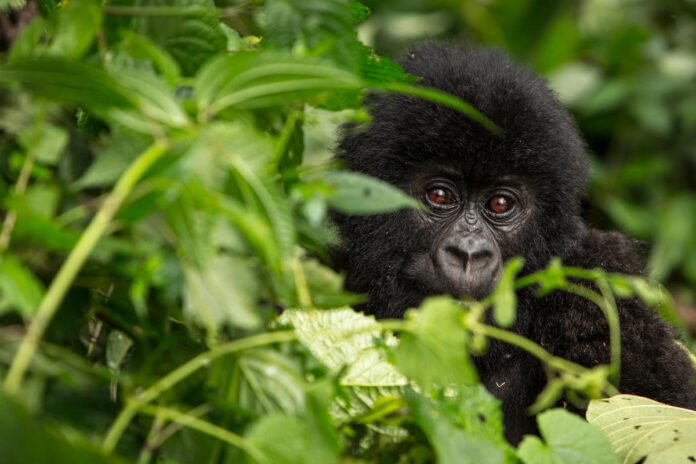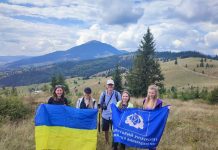The speed and intensity with which we’re destroying the natural world is continuing at pace because leaders are failing to deliver on their promises for nature and climate, putting unbearable strain onour planet and placing all life on Earth on the brink of catastrophe, according to WWF.
The WWF’s flagship Living Planet Report, published today, shows that population sizes of global wildlife have plummeted by 69% on average since 1970. If we considered humankind as a single population, that would be the equivalent of us losing everyone from Europe, the Americas, Africa,Oceania and China.
This year’s report is the most comprehensive in its 24-year history and is based on data from ZSL’s Living Planet Index (LPI), which analyses almost 32,000 populations of 5,230 species – with more than 838 new species and just over 11,000 new populations added since the previous 2020 report.
It emphasises that without halting and then reversing this catastrophic loss of the natural world, our climate fight will be lost. The report points to the consumption habits of wealthy countries and our reliance on fossil fuels as disproportionally driving nature loss.
WWF is particularly concerned about data from tropical regions including the Caribbean and Latin America – home to the Amazon and one of the most biodiverse regions on Earth, which are seeing average wildlife population sizes plummet by 94% since 1970. This staggering rate outstrips all other regions on Earth. Species seeing catastrophic loss include the Amazon pink river dolphin, which saw its population in the Mamirauá Sustainable Development Reserve in the Brazilian state of Amazonas plummet by 65% between 1994 and 2016.
WWF says that increased conservation and restoration action in these tropical regions is urgently needed but these efforts will not succeed unless world leaders, including the UK Government, get nature and climate promises back on track. But action needs to be taken everywhere, not just in the tropics.
According to the Biodiversity Intactness Index, the UK has only 50% of its biodiversity
richness compared to historic levels, placing us as one of the most nature-depleted countries in the world.
Despite these harrowing statistics, there are huge gaps in the delivery of climate and nature promises from world leaders. WWF warns that the UK Government, elected on their greenest ever manifesto, must double down on delivering their climate and nature commitments, and embrace net zero solutions as the only route to economic, energy and food security.
At a time when the UK is grappling with a cost of living and energy crisis, a rapid shift to net-zero solutions, such as cost-effective renewable energy, would stimulate investment and get the economy back on track. Such interventions will enable the UK to compete better on world markets,create many new jobs, slash emissions, make space for nature and build the resilience of the UK’s food and energy systems for future generations.
Tanya Steele, Chief Executive at WWF, said:
“Despite the science, the catastrophic projections, the impassioned speeches and promises, the burning forests, submerged countries, record temperatures and displaced millions – world leaders continue to sit back and watch our world burn in front of our eyes.
“The climate and nature crises, their fates entwined, are not some faraway threat our grandchildren will solve with still-to-be-discovered technology.
“Across the world, and in the UK, nature is on its knees and our leaders are risking catastrophic consequences for people, planet and our economy by failing to act. We are hurtling towards a hotter planet where nature – and with it, our food, our homes and livelihoods – will be unable to survive without urgent action now to save our climate.
“The world doesn’t have time to wait – and doing so would be the biggest possible betrayal of future generations.”
Dr Robin Freeman, Head of Indicators & Assessments Unit at ZSL, said:
“Our Living Planet Index continues to show sustained declines in wildlife populations. We now have more data than ever about trends in biodiversity and – across a variety of indicators – it’s clear we are being sent a serious message: we are eroding the very foundations of life and urgent action is needed.
“Governments meeting this December in Montreal have the opportunity to secure the health of species and restore ecosystems, to ensure a future for nature across the globe. ZSL is calling on world leaders to put nature at the heart of all global decision-making at COP 15, by making stronger targets and commitments to reverse biodiversity loss – and urge them to include the LPI as a headline indicator through which to hold these targets to account.”
The Living Planet Report makes clear that delivering a nature-positive future will not be possible without recognising and respecting the rights, governance, and conservation leadership of Indigenous Peoples and local communities around the world.
Speaking about land in her Indigenous community, Auricélia Arapiun, leader of CITA – Tapajós Arapiuns Indigenous Council in the Para state of the Brazilian Amazon, said:
“The decline in animals across our land is stark – we used to see armadillos every day, now we see none. Jaguars used to be hard to spot, but because their hunting grounds and the trees that were their habitats have been destroyed, they come to our villages and kill our dogs. We have to keep a very careful eye on our children. This never used to happen, they would hunt and roam in the forest.
“I have chosen to sacrifice my life and my location to make sure that my children have a sacred place they can call home when they grow up. I’m fighting for their future.”







